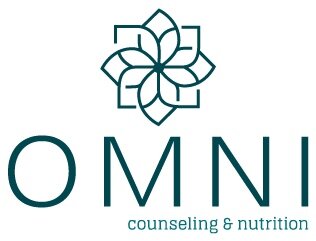I Hate My Body, Now What?
I was having a conversation with one of my good friends the other day and we were talking about how entering our thirties has changed the way that we relate to our bodies. In a lot of ways it has become more challenging. With pregnancies and the natural course of aging come many body changes. While we sat and talked in her living room here in Denver, I was struck by the fact that I find this particular friend to be one of the most radiant individuals in my life. She exudes strength and compassion and she is one of my most supportive friends and has been there for me through literally the last 30 years (we celebrate 30 years of friendship next year)!
Despite her radiance, she was telling me about how she struggles to accept her body and to let go of the desire to change her form. She expressed feeling hopeless as it relates to her post pregnancy body and how much things have changed. We talked about stretch marks and cellulite and wobbly bits that were not there before. We talked about our society and the crushing pressure that we are all under to live up to the beauty ideals propagated by diet culture and white supremacy (read more about that here).
All of this got me thinking. When did we decide that these characteristics that are so widely held by most bodies are “bad, wrong, or ugly”!? We talked about how our bodies are what they are, and yet many people in our society spend years and years of their lives trying to manipulate or transform their bodies into something else, through chronic dieting, disordered eating, and excessive exercise. What if we reframe the narrative and start to look at working towards acceptance of our bodies and the changing landscape that is inevitable therein, rather than spending time obsessing over how to make our bodies look perfect? Perfection is not attainable anyway.
That begs the question, how the hell do we learn to accept our dimpled, stretch marked, sagging wrinkling, and aging bodies?
Not only do we need self-compassion but we also need collective compassion in order to move towards a world that is accepting of ALL bodies. Can you ask yourself, what biases do I hold onto in regards to bodies that impact my ability to be more accepting? Do you maintain that cellulite is ugly? Do you hold onto the cultural narrative that fatness equals laziness? Do you uphold systems that oppress people of color, people in larger bodies, people with disability(s), or people whose gender expression does not fit the binary? Where do you notice bias in the way that you see other people’s bodies? Where do you notice these biases or judgments in your relationship with your own body?
The work of body acceptance is not isolated for you as an individual. It is not only about learning to accept yourself, likewise it is about the collective and learning to accept everyone and fight for justice for all bodies. If the world we live in continues to uphold unrealistic beauty and body standards, we will never find acceptance for ourselves. In order to accept your body you must also work toward accepting ALL BODIES. The work is in dismantling the ridiculous standards that are set by diet culture and the patriarchy.
This work may include petitioning to have bathrooms changed in your place of employment to be gender neutral. This work may include incorporating chairs of all sizes in your home or office in order to accommodate bodes of all sizes. This work may include ensuring spaces are accessible to those who cannot walk. It may include having challenging conversations about difference and ways we can work toward understanding one another better rather than maintain the “them and us” mentality.
The work of body acceptance relies mostly on examining your own internalized biases and the ways those prejudices skew your view of yourself and others. If you cannot accept the person who looks different from you, true acceptance of self will always be out of reach.
I will end with a beautiful quote from Sonya Renee Taylor’s book; The Body is Not an Apology, “Radical self love is interdependent…Radical self love is about the self because the self is part of the whole. And therefore, radical self-love is the foundation of radical human love.”
Help starts here. We’re a few clicks away, always.
